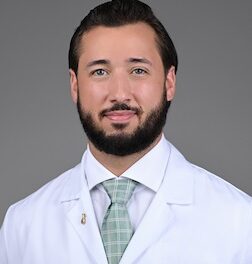 As Jeanie Sands approached the end of her life, it became clear to the family members at her bedside that she was holding on to something, unable to let go and pass away in peace.
As Jeanie Sands approached the end of her life, it became clear to the family members at her bedside that she was holding on to something, unable to let go and pass away in peace.A chaplain in Sands’ room at the VITAS inpatient hospice unit in Palm Beach County asked her family if there was anyone else to whom Sands, 78, wanted to say “goodbye.” When the chaplain learned of Sands’ estranged brother, with whom Sands had refused to speak in years, the chaplain suggested calling him. To the family’s surprise, Sands agreed. The chaplain dialed the phone and spoke to Sands’ brother, explaining the reason for the call, and held the phone to Sands’ ear.
The room was still but for the tender whispers between Sands and her brother, and then came the words the family had longed to hear between brother and sister: “I love you, too.” After the call, the chaplain led Sands and the family in prayer. The next morning, Sands passed away peacefully.
“Words cannot express the gratitude, thankfulness, and love we have for VITAS and for this chaplain for helping my mother die peacefully,” said Deann Gedmen, Sands’ daughter.
Stories like this are a testament to the importance of providing spiritual care at the end of life. Often, patients struggling with physical symptoms of terminal illness are also battling pent-up anxieties and concerns about their lives and relationships, emotions that often exacerbate their physical distress and unease. It is critical for caregivers to take the time to assess and ease patients’ spiritual and emotional pain to help ensure they pass away in peace.
Recognizing this, VITAS offers spiritual care services to its adult and pediatric patients. As part of its commitment to excellence as the nation’s leading hospice provider, the company requires all its chaplains to obtain clinical pastoral education from the Association for Clinical Pastoral Education, Inc. VITAS chaplains also assist patients with funerals and memorial services, sacraments such as communion and anointing, bar and bat mitzvahs, and even weddings. They also facilitate support groups in the community and provide bereavement services and follow-up for patients’ family members, including children.
VITAS’ chaplains work with interdisciplinary teams of physicians, nurses, social workers, volunteers and other hospice caregivers as part of VITAS’ holistic approach to hospice care. They serve patients with varied cultural backgrounds and faith traditions as well as with those who profess to be connected with no faith community. Embracing the diversity and meeting patients wherever they are, without imposing any agendas or belief systems, VITAS’ chaplains invite patients to share their stories and give voice to what is important to them.
A key part of VITAS’ spiritual care strategy is “Life Review,” a tool that helps patients to talk about their joys or accomplishments and regrets or grievances in order to ultimately let go of the pain and find peace. Through this process, many patients discover that their long-held fears of reaching out were unfounded, as their loved ones are open to speaking with them and equally relieved to obtain closure.



























